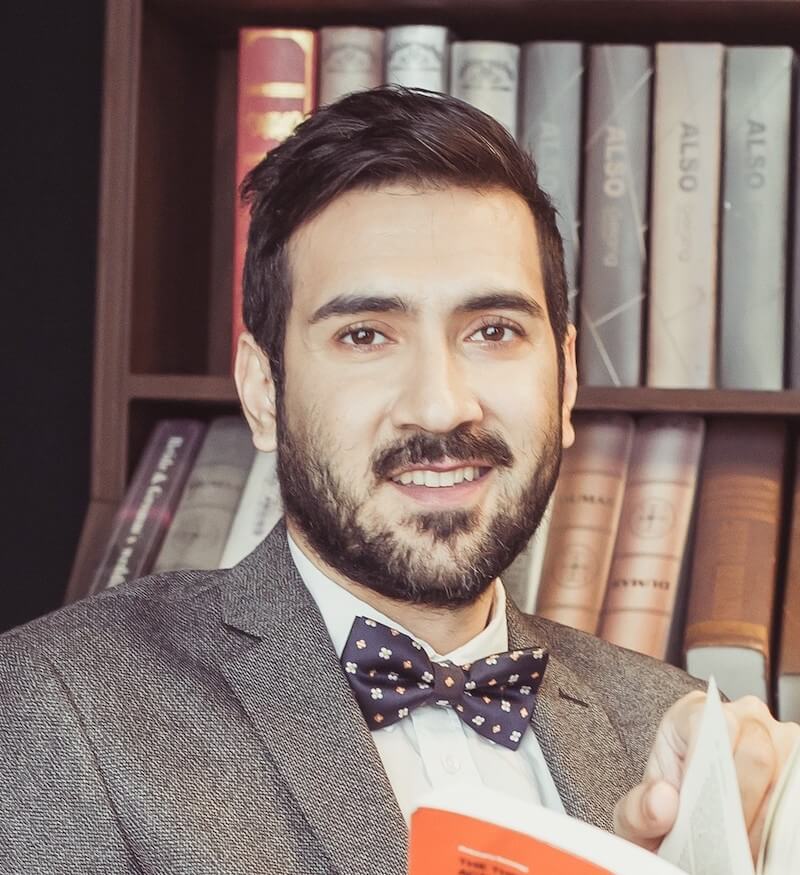In this episode:

Morhaf’s diagnosis of metastatic lung cancer was revealed gradually a the conversation with his lung doctor who walked him through a series of images and pathology results. Given a moment to absorb the news, Morhaf cried and then asked “What’s next?” Despite feelings of sadness and loss, he wondered,
“Are there glimmers of hope?”
A cancer diagnosis is devastating for patients and healthcare providers alike. As a physician, Morhaf recognizes the importance of giving patients the space to process their diagnosis and to understand the widespread implications of cancer. Morhaf knew the statistics of survival for his diagnosis and had access to resources that made the journey more bearable. While moving from a doctor to a patient was devastating, Morhaf has become more sensitive in managing his own patients.
“Cancer impacts not only the body; it reshapes all aspects of life.”
The “Big C” is not a death sentence; one should never lose hope. Morhaf advises patients and caregivers seek trusted resources and a healthcare team as well as others who share their diagnosis.
Although Morhaf’s sense of identity has evolved throughout his life, his cancer diagnosis exacted the most notable challenge. Initially, cancer brought a devastating sense of loss, not only of life, but to access of doing what is most essential, which for Morhaf is being a physician. Morhaf feels fortunate that, after few months of taking time off, he was able to continue seeing patients, although in reduced work hours. His diagnosis also put into question where Morhaf belongs, his life path, relationships. Taking on the identify of a patient was transformative and led Morhaf to connect with a large community of cancer survivors. His personal devastation has also connected him to the Syrian struggle, realizing through the shared experience of suffering, one can connect with others. Morhaf reflects that through his loss of one identify, he has grown and gained new aspects.
“Take my cancer away and bring me back my old self”
Morhaf doesn’t celebrate cancer, doesn’t view it as a gift. However, he acknowledges that he was faced with a difficult situation and is making the best of it. The urgency of an incurable disease propels individuals to squeeze their life projects into a short period of time. This comes with sacrifices, trade-offs, and loss of connection.
As a community, we can help healthcare providers by sharing our stories. Bringing marginalized patient groups to the center is a reminder of our shared humanity. Stories of doctors as people are equally important. They struggle with emotions, with taking the diagnoses home, and navigating the devastating COVID pandemic. We must provide healthcare providers with care and support; their roles expend extraordinary emotional energy.
“Doctors are heroes. Because they are human.”
Cancer is an isolating disease, and this lack of connection has been exacerbated by the COVID pandemic. On-line support groups and video meetings are making the situation more bearable; however, disparity exists. Not all have access to these platforms. Much work remains to be done to ensure that the needs of all – on the individual and community levels – are addressed.
Living with cancer during COVID has been challenging. Patients are faced with daunting decisions. Continuing chemotherapy – while it treats their tumor – may compromise their immune system, making them more vulnerable to the virus. Stopping chemotherapy to decrease their infection risk may result in tumor progression. Individuals living with cancer need to take precautions which exacerbates their isolation. When faced with an incurable cancer, these human connections are precious, compounding this loss of time from loved ones.
Conditions for success in life are not distributed equally, leading to disparity. An important moral question for Morhaf is what was available to you as an individual, and what did you do with those circumstances? Morhaf urges us to consider what communities can do ensure conditions are more equitable. COVID has shone a spotlight on the inequity and disparities that exist, disproportionately impacting those who are marginalized and underserved.
“I have my words and my hands to type them.”
“If I’m not going to live very long, then how can I make the time that I live here spent towards making the world a better place for those who are staying after I am no longer here” drives Morhaf’s introspection and propels his writing and speaking about many topics including access to health care, disparity, and the Syrian crisis.
Humanity struggles with authenticity. And authenticity is essential to who we are. Morhaf shares his story, so that others can see him, know him, and want to share their story too. Humanity is constituted of memoires – of narratives, of stories. In sharing our stories, we make accessible experiences and dialogue that all can learn from.
“By sharing my story, I am participating. And I’m inviting others to participate.”
Grief is part of the lived experience. Major losses change our life course: loss of a loved one, a parent, a child. Over time, our experience with grief changes. With support and space to share our grief, we can move towards healing and celebration of life as well as a reconciliation of mistakes made.
“When I die, I want people to remember me.”
Morhaf’s memoir was published on his birthday, May 23.
Resources
Thank you for listening!
May our stories help forge your path forward. I hope you’ll stay tuned for our next episode and in the meantime, learn more about my story on my blog.

